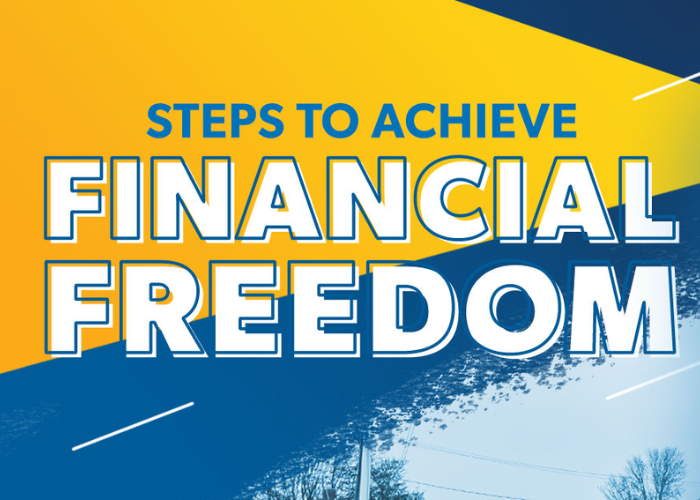As the cost of living continues to increase and the cost of debt continues to mount, more and more people are looking for ways to break free from the financial burdens they are facing. Financial freedom is a state of being where you can have control over your money and spending, as well as having enough saved up for future goals and investments. Achieving financial freedom can be difficult to do on your own, but with the right knowledge and strategies, you can start making the changes necessary to build up your financial independence. In this blog, we’ll explore the benefits of achieving financial freedom, setting financial goals, strategies for smart saving, the benefits of using online apps and tools for budgeting, reducing spending habits, changing your mindset towards money, developing an investment plan, seeking professional advice, and more opportunities for earning money.
Benefits of Achieving Financial Freedom
The most obvious benefit of achieving financial freedom is the freedom it provides. When you’re in control of your finances, you can make decisions about how to use your income without feeling restricted by debt or financial obligations. This freedom can be especially helpful if you’re trying to start a business or make a major life decision, like buying a house or taking a big trip. Financial freedom also brings with it greater peace of mind and security. When you’re in control of your finances and have a plan for the future, you can worry less about the present and focus more on what matters to you.
Setting Financial Goals
Setting financial goals is key to achieving financial freedom. Without clear goals and milestones, it’s easy to lose sight of what you’re trying to achieve and how you’re going to get there. Goals provide a sense of direction and purpose, and they can help motivate you to keep taking consistent action toward achieving them. Consider short, medium, and long-term goals. Short-term goals are things you can achieve within a few months, such as saving for a vacation or eliminating a certain amount of debt. Medium-term goals are things you can achieve within a year or two, such as building an emergency fund or investing in a retirement account. Long-term goals are things you can achieve within five years or more, such as paying off a mortgage or starting a business.
Strategies for Smart Saving
Saving money is a critical component of financial freedom. It can help you pay for big expenses, build an emergency fund, or just have some extra money for fun. There are many strategies you can use to save more money each month. Start by tracking your spending to get an accurate picture of where your money is going. Then, create a budget and adjust it as needed. Make sure you’re taking full advantage of any employer-matching contributions to your retirement account. Finally, consider setting up an automatic savings plan, where a certain percentage of your income is automatically transferred to a savings account each month.
Benefits of Using Online Apps and Tools for Budgeting
Using online budgeting apps and tools can make it much easier to manage your finances and stay on track with your financial goals. Not only do these tools make it easier to track your spending and create a budget, but they also offer features like reminders and notifications to help you stay on track. They also provide helpful insights and analytics to help you identify areas where you’re overspending or underspending. Plus, many apps and tools are free, so you can start using them right away.
Reducing Spending Habits
Reducing spending habits can be one of the most effective ways to save money and achieve financial freedom. Start by tracking your spending to identify where you’re overspending. Then, create a budget and set spending limits for yourself. Consider automating your savings to make sure you’re consistently putting money into savings each month. Finally, look for ways to reduce your expenses, such as cutting back on eating out or canceling unused subscriptions.
Changing Your Mindset towards Money
It’s important to have a healthy mindset toward money to achieve financial freedom. Money is a tool that you can use to make your life better, but it can also be a source of stress and anxiety. To have a healthier relationship with money, start by evaluating your beliefs and attitudes about money. Do you view money as a means of control, or do you view it as a tool to help you reach your goals? Do you think of money as something that needs to be earned and saved or something that can be given away freely? Make sure your beliefs align with the type of life you want to create.
Conclusion
Investing is a key component of financial freedom. Investing in stocks, bonds, mutual funds, and other securities can help you grow your wealth over time. Start by educating yourself on the basics of investing and familiarizing yourself with different types of investments. Then, create a plan that aligns with your goals and risk tolerance. Make sure to diversify your investments to reduce your risk






